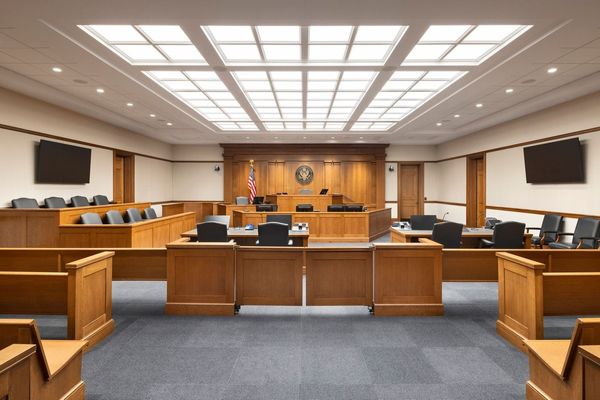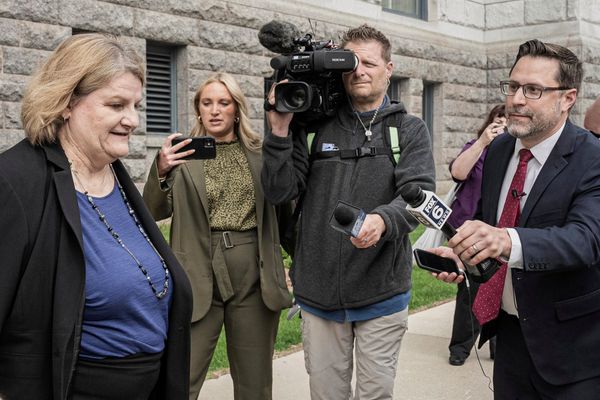
The man accused of fatally strangling Jordan Neely with a chokehold in a New York City subway car last month pleaded not guilty to charges of manslaughter and criminally negligent homicide in a court appearance on Wednesday to enter a plea to a grand jury indictment charging him in the killing.
Daniel Penny, 24, was captured in videos recorded by bystanders choking Neely from behind for several minutes on 1 May while they rode on a train on the F line, in Manhattan.
The killing drew national attention and sparked protests in May by those angered by the police’s delay of more than a week in arresting Penny, who is white, on suspicion of killing Neely, a Black man who was unhoused and begging passengers for something to eat and drink.
Before the grand jury proceedings, Penny first appeared in the Manhattan criminal court on 12 May on a charge of second-degree manslaughter, a felony crime that carries a maximum sentence of 15 years in prison. He was released on bond after surrendering his passport.
Charges in the grand jury indictment were unsealed on Wednesday.
In the minutes before he was killed, Neely, a 30-year-old former Michael Jackson impersonator who struggled with mental illness, had been shouting about how hungry he was and that he was willing to return to jail or die, according to passengers on the subway car.
Penny has said he acted to defend himself and other passengers, and did not intend to kill Neely, and he has been hailed as a hero by prominent Republican politicians and supporters, who have raised millions for his defense. Protesters have decried Penny as a vigilante and described Neely’s death as a lynching.
Penny, a military veteran, was questioned by police that day but was not arrested or brought to court until 11 days after the killing.
Witnesses have said Neely did not physically threaten or attack anyone before Penny grabbed him. His killing renewed debate about gaps in the city’s systems for homeless and mentally ill New Yorkers.
Speaking to reporters outside the courthouse after the hearing, one of Penny’s defense attorneys, Thomas Kenniff, said he believed New York jurors would be sympathetic to his client.
“There is not a living, breathing soul in Manhattan that has not experienced a variation of what not only Mr Penny but other individuals experienced on that subway car,” Kenniff said.
Donte Mills, a lawyer representing Neely’s family, addressed those supporters in his remarks outside the courthouse.
“For everyone who thought donating $3m would somehow make this go away or buy his pass: it’s not going to happen,” Mills told reporters. “You can ask for a refund.”
Reuters contributed reporting







